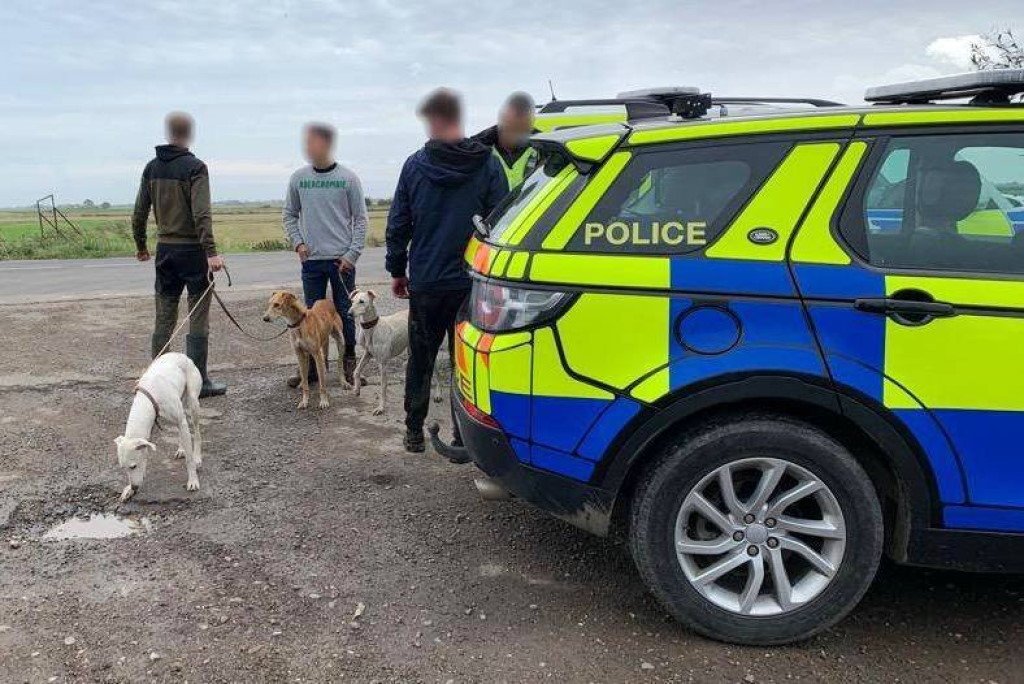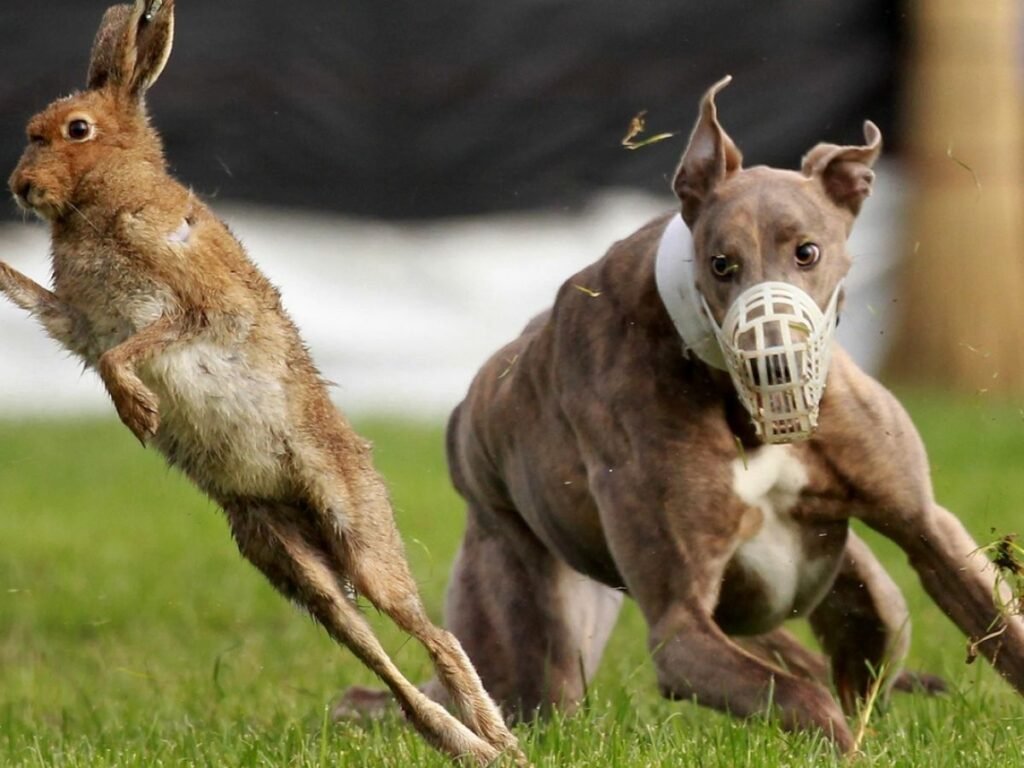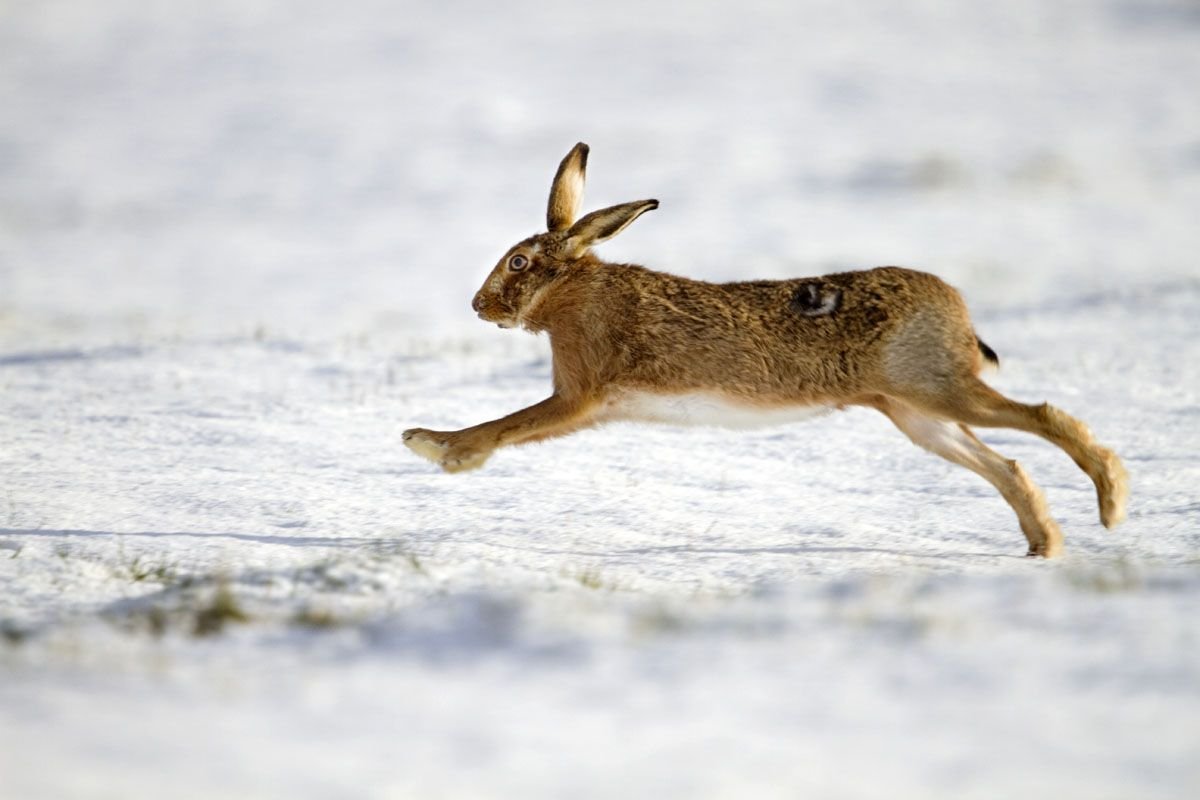Spare a thought for the hares this winter.
Many people get upset at Christmas when the fox hunts put themselves on display to celebrate one of the outdated traditions of the British countryside, but there is another evil traditional “sport” that is gathering pace in the English countryside despite being illegal and that is hare coursing. It has been gaining in popularity over the last few years partly because it now involves black market gambling thanks to modern technology like WhatsApp and organised trophy events.
Somewhere in a field not far from you, (particularly if you live in the eastern counties where the flat landscape makes easy viewing for spectators), there will be a group of people planning or staging an event at this very moment. And it may be streamed nationally on mobile phones via WhatsApp for gambling purposes generating thousands of pounds. Some events even involve trophies such as one called the “Fir Cup” with £6,000 prize money. Owners of prized dogs can earn even more in breeding fees.

Clamping down on illegal hare coursing.
At the beginning of December 2020 there was a debate in the House of Commons on hare coursing which was thankfully well attended, particularly by MP’s from the most affected counties. There was general agreement that the issue needed immediate attention but as always it was a question of what to do. One MP commented that:
“Hare coursing is as far removed from sport as you can possibly get. It is nothing more or less than the cruel use of live hares to train dogs to hunt them down and kill them just to make money”. Gordon Henderson, Conservative MP, Sittingbourne.
Johnathon Djanogly, MP for Huntingdon, pointed out that farmers have the extreme legal recourse to shoot all the hares on their land to prevent the violence, intimidation and damage caused by being invaded by coursers, but eradicating hares should not be the last resort just because the law cannot be enforced.
This can happen because although hares are included in the UK biodiversity plan they have no protection from being hunted only from being coursed. It is obviously a crazy situation which is not helped by the refusal of the Republic of Ireland to ban hare coursing. Official events akin to horse and greyhound racing still take place involving thousands of live hares.

Police powerless and farmers under siege
Hare coursing is one of five priorities of the national wildlife police crime unit, but they are unable to do a great deal because of inadequate and ancient laws. Farmers do their best to barricade their land but the coursers arrive armed with battery powered disc cutters to remove gate padlocks or cut through metal barriers.
The Crown prosecution service admits that:
“Hare coursing can cause significant disturbance in the countryside, as well as causing a lot of concern to people living in the wider rural community where the activity takes place.”
The average fine handed out under the Game Act 1831 was £227 between 2014-2018 when the maximum allowable is £1,000 or £2,500 if more than five people are present. MP’s are asking for police powers to make owners pay for kennelling while awaiting trial if their dogs are seized. At the moment the Police cannot reclaim the costs as they can for offences under the Animal Welfare Act 2006 and are disinclined to seize the dogs.
It seems that MP’s might at last be sincere in their wish to clamp down on coursing but probably more for the sake of the farmers safety and livelihood than that of the hares, but for whatever reason it will still benefit the hares.
